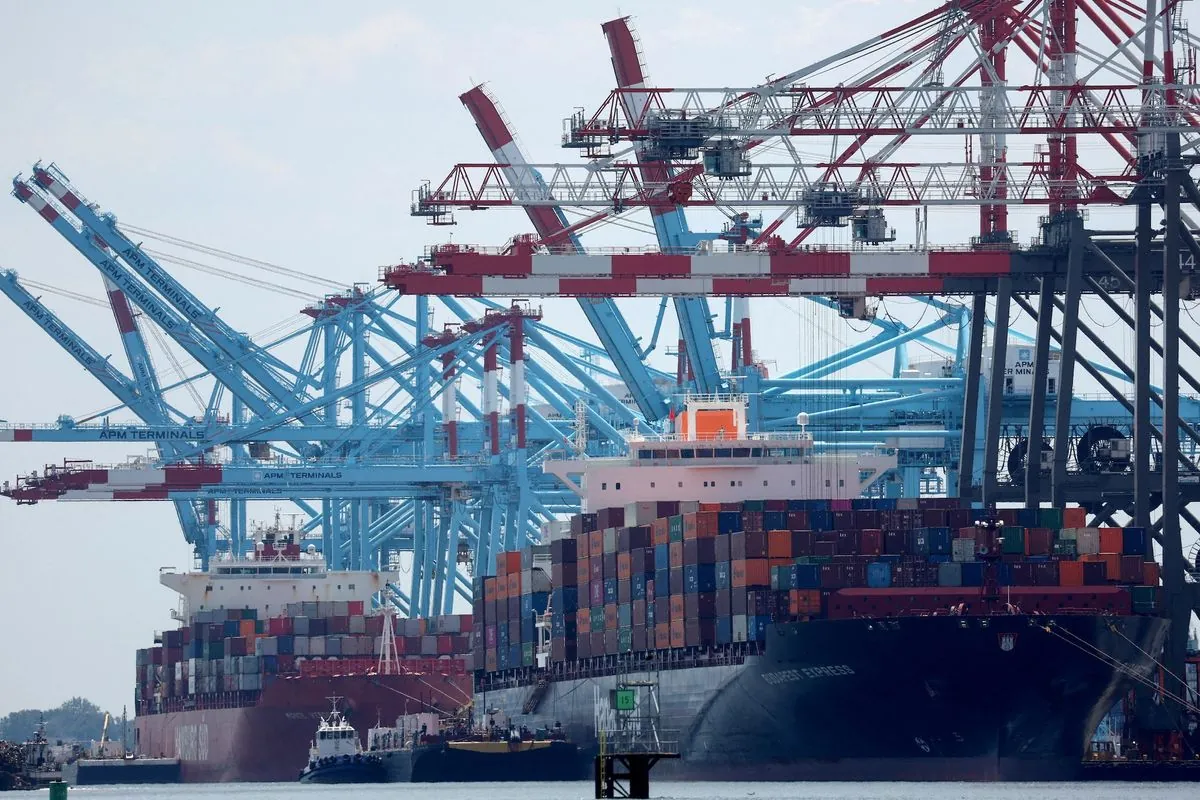Dockworkers along the U.S. East and Gulf Coasts are poised to initiate a significant strike, marking a critical moment in the history of American maritime labor. This impending action, set to commence on October 2, 2024, at 12:01 a.m. ET, threatens to disrupt approximately half of the nation's ocean shipping capacity.
The International Longshoremen's Association (ILA), representing 45,000 port workers, has been engaged in negotiations with the United States Maritime Alliance (USMX) for a new six-year contract. These talks, however, have reached an impasse, primarily due to disagreements over wage increases and the contentious issue of port automation projects.
This strike holds particular significance as it is the first such action by the ILA since 1977, ending a 47-year period of labor peace in the sector. The ILA, founded in 1892, has a long history of advocating for dockworkers' rights and working conditions. Similarly, the USMX, established in 1997, has played a crucial role in representing maritime employers in labor negotiations.
The economic implications of this strike are substantial. Analysts project that the work stoppage could cost the U.S. economy an estimated $5 billion per day. This disruption is expected to affect a wide range of industries, from automotive to retail, potentially leading to supply chain bottlenecks and inflationary pressures.
The strike will impact 36 ports along the East and Gulf Coasts, including major hubs like the Port of New York and New Jersey, the largest on the East Coast, and the Port of Houston, the Gulf Coast's primary maritime center. These ports handle a diverse array of containerized goods, from perishables to automobiles, underscoring the far-reaching effects of the strike.
"The union is holding the entire country over a barrel. I'm really afraid that it is going to be ugly."
The political ramifications of this labor dispute are significant. The Biden administration finds itself in a delicate position, balancing its pro-labor stance with the need to mitigate economic disruption. While administration officials have engaged with both parties to encourage a resolution, they have ruled out using federal powers to break the strike, a decision that has drawn criticism from business groups.
Retailers, who account for about half of all container shipping volume, have been implementing contingency plans. Major players like Walmart and Costco have accelerated their holiday merchandise imports and are exploring alternative logistics strategies to minimize disruptions during the crucial winter shopping season.
This labor dispute occurs against the backdrop of significant technological changes in the maritime industry. The introduction of container shipping in the 1950s revolutionized maritime trade, and the ongoing debate over port automation reflects the industry's continued evolution. The first automated container terminal in the U.S. opened in 1993 in Norfolk, Virginia, setting a precedent that has since been a point of contention between labor and management.
The strike also highlights the complex regulatory environment governing U.S. maritime commerce. The Merchant Marine Act of 1920, commonly known as the Jones Act, plays a crucial role in regulating maritime activities in U.S. waters. Additionally, the Maritime Labor Convention, adopted in 2006, sets global standards for seafarers' rights, further complicating the landscape of maritime labor relations.
As the situation unfolds, the impact on U.S. ports, which number over 360 and handle various types of cargo, remains to be seen. The outcome of this dispute could have lasting implications for the future of maritime labor relations and the ongoing debate over automation in the shipping industry.
